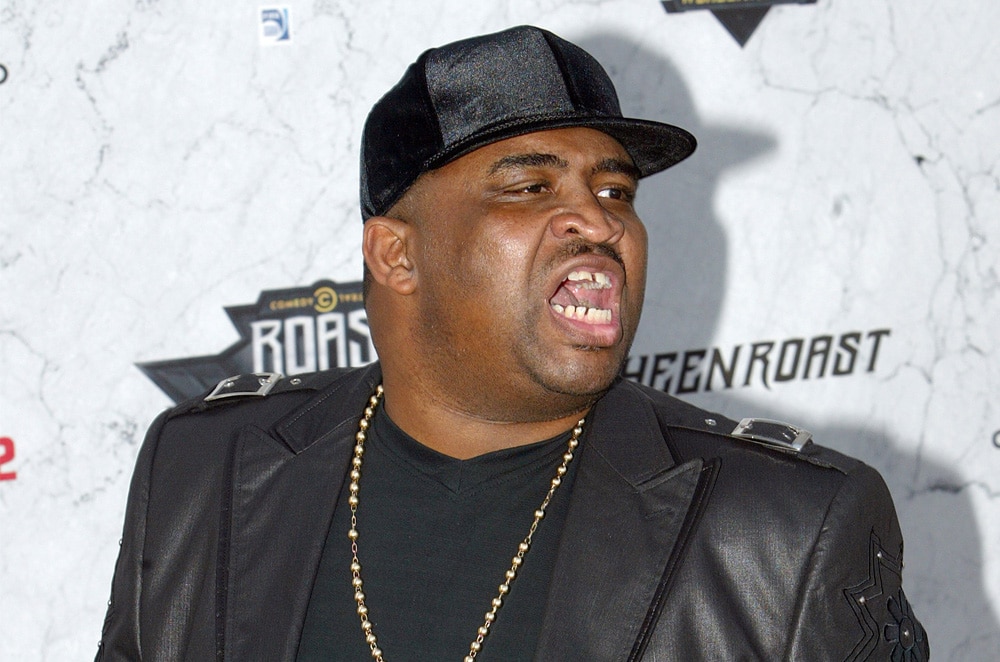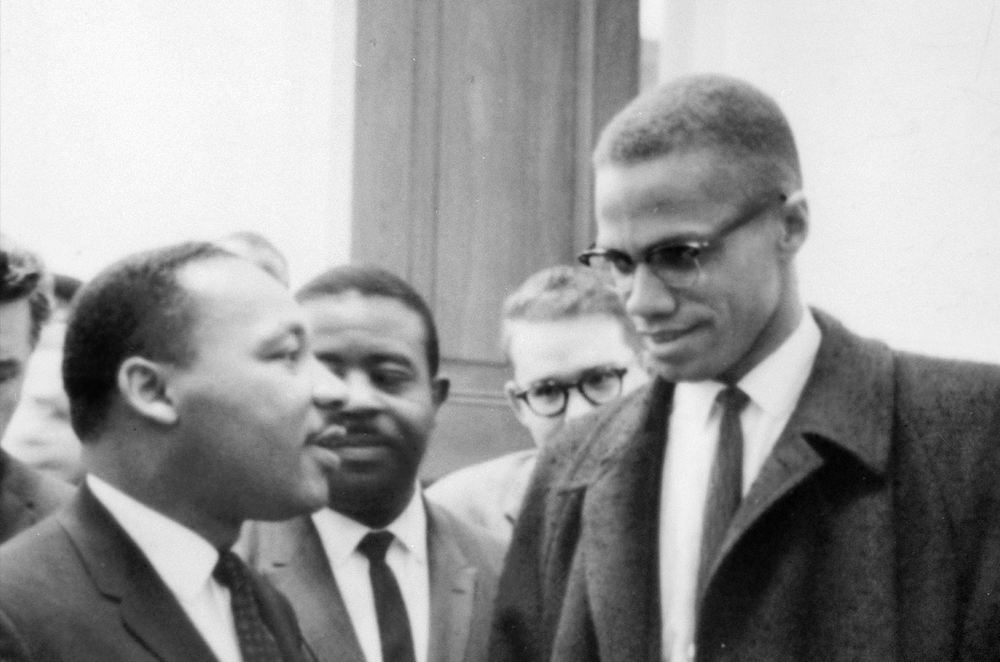00011 | April 11, 2018
Being a Middle-Aged Graduate Student
C. Travis Webb and Seph Rodney discuss their decision to go back to graduate school late in life. What does it take to participate in the pursuit of human knowledge, and is it worth the cost?

| C.T. WEBB 00:17 | [music] Good afternoon, good morning, or good evening. And welcome to the American Age podcast. Today I’m talking again to Seph Rodeny. Seph, how you doing? |
| S. RODNEY 00:24 | I’m somewhat stressed but I’m here. |
| C.T. WEBB 00:27 | Seph has an appointment with an artist right after the podcast today. And we’ve had some technical difficulties. None of which you care about. So Seph and I have known each other for many, many years. And rather than talk about one of our headier choices, today we thought we’d talk about– we have a common experience, which is that we both went back to do our graduate degrees– our PhD’s pretty late in life. I mean, even late by humanity’s academic standards. So we thought we would just kind of talk about that. And I know there’s a lot of people that think about going back to grad school, or have gone back to grad school, or have finished PhD’s and aren’t really happy with the results– certainly on the job market and all the rest of that. So Seph, why don’t you– I don’t know. Why don’t we just do a little bit more of a back and forth conversation than we usually do, instead of our soliloquy, soliloquy [laughter]. |
| S. RODNEY 01:24 | Well, I think the question we could probably start off with is just asking ourselves, not so much why, because I think the conversation will lead naturally to why. But sort of, what came out of deciding to go back to school at a late age, and really how our lives have turned out because of that decision. And I went back to school at 36. I went to the London Consortium program at Birkbeck College in London back in 2006. And at the time you and I had had long discussions in the previous years about how unhappy I was in my job doing retail, slinging over-priced bullshit at rich people. |
| C.T. WEBB 02:15 | High-end retail, by the way. |
| S. RODNEY 02:16 | Yeah, yeah, yeah, yeah, yeah. Armani and all that. But what has come out of it– and I had reason to think about this a lot in the last few years, because the last few years have been particularly difficult– I mean, financially, emotionally, physically, even medically at times. But what’s come out is that I have a better life. It’s just better in sort of all the sort of metrics that I would use to talk about the worth of a life. It’s better. And I sum it up this way. I was actually having a conversation with a person at a party on Saturday– a woman named Miranda, who’s a good friend of Steven’s. They used to work together at the Schaumburg. |
| C.T. WEBB 03:03 | Steven Fulwood. The other contributor on the podcast. |
| S. RODNEY 03:05 | Right. And we were talking about sort of where we are in our lives and how it’s going. And I said, “It’s actually the best, really, it’s ever been. Because now–” and this is the key metric– “I get paid to do the thing that I actually really want to do. And I’m respected for it.” Like, people understand that as an art critic, as a voice that takes quite seriously the endeavor to make art, to investigate the gap between art and life. As someone who does that, I am more respected by my peers, by my colleagues, by people who have the same sorts of interests. And I just didn’t have that before. |
| C.T. WEBB 04:04 | Yeah, you’re respected for work that means something to you. |
| S. RODNEY 04:08 | Exactly. |
| C.T. WEBB 04:09 | Which makes a massive difference. Yeah, I went back at 39. So you’ve got a few years on me, as far as when we were born. But I went back at 39 and it was– I had gone back and forth over whether to go to graduate school. I had two master’s degrees actually before that. |
| S. RODNEY 04:33 | I remember what your ex-wife had said about you. She said that you were a collector of degrees. You remember that? |
| C.T. WEBB 04:38 | Ex-wife. Well, not my ex-wife. Rebecca was never my– |
| S. RODNEY 04:40 | Sorry. Sorry. Yeah. |
| C.T. WEBB 04:42 | It’s way more trailer park– |
| S. RODNEY 04:43 | Right, the mother of your oldest son. |
| C.T. WEBB 04:45 | Yeah, yeah. It’s way more trailer park than that [laughter]. So the mother of my oldest son. Never married. And my oldest son who I’m very proud of, who’s at UCLA right now. And that was a long road. But I don’t say I had two master’s degrees with pride, right [laughter]? There’s no– you don’t need a second one of those. I don’t know that you need a first one of those. But there was a second one that I decided I needed to get. And then I adjunct it for a long time– five years. And the adjunct life is not fantastic. But if you have an advanced degree in English, which I do, you can adjunct at a state school here in Southern California. And there’s a lot of classes. I mean, they need someone to staff these writing classes because every freshman has to take writing. So you can get the work. And there’s a song by Dan Reeder called, “I Got All the Work I Fucking Need” [laughter]. And that’s just the song over, and over, and over again. “I got all the fucking work I need.” And that’s how I felt when I was adjuncting six, seven classes in a term. I made decent money. I was comfortable. But that was enough. I didn’t need any more work. And there was really not a lot of room for intellectual work. Some. I still think it’s better than a lot of jobs out there. I wouldn’t even necessarily say a factory line job. But I just mean a cubicle job that not only eats up all of your time. Eats up your soul, too. So there were some resources left over. |
| C.T. WEBB 06:32 | But I didn’t want to do it anymore. Because I think probably just baseline pride. I mean, you are absolute lowest man or woman on the totem pole if you are adjunct faculty, particularly without a PhD. And I didn’t necessarily– when I decided I wanted to go back and get my PhD, I didn’t necessarily have any strong notion that I wanted to get a tenure track job somewhere. It was kind of in the back of my mind. But I just knew that it was an idea that wouldn’t go away, right? So sort of like a pest. It was the thought itself was a pest. And in my life if thoughts pester me for long enough I figure they’re pestering me for a reason. And that thought pestered me for a really long time. And I was married at the time. And I talked to Molly. We had just started our business. It was relatively small. I certainly had no business leaving the business to go back and do a graduate degree. But it was running decently well-enough that I could at least justify that to myself. |
| S. RODNEY 07:48 | I remember when we talked about it and you said you wanted to do this. And we had talked a long time like we had talked a long time about me going back to grad school. And we had talked a lot of back and forth. And in that way that you describe of having the idea pester you. And I remember thinking to myself– I don’t think I said this to you. But I remember thinking, “That’s damn near impossible.” It was one thing for me. I did not have child. I was desperately poor but I didn’t have a child. And I wasn’t running a business. And I went off to London to work on this thing. But you had a child, and a business– |
| C.T. WEBB 08:33 | Two. I was homeschooling my oldest. |
| S. RODNEY 08:34 | Right, right, right, right. Exactly. And running a business. And I thought, “How in the world?” I thought it. I don’t think I said it to you [laughter]. |
| C.T. WEBB 08:48 | I don’t think you did either. |
| S. RODNEY 08:48 | But I thought, “This shit is impossible.” |
| C.T. WEBB 08:51 | You’re far too polite to do that. |
| S. RODNEY 08:52 | “There’s no freaking way. How you going to do that?” I have trouble managing myself without all those responsibilities. So I remember being really– I was a little bit afraid for you. I was. |
| C.T. WEBB 09:09 | Yeah. My wife is great. Molly is fantastic. And we hadn’t– no, that’s not true, we did have–. My wife, she actually, she gave birth to Dean that first year I was in school. But I went in with a head of steam, right? I was not into the nonsense of being a graduate student. I had no desire to be a graduate student. I just used air quotes around graduate student for all the people that can’t see us. The handful of people that can’t see us. But I just didn’t waste my time. I didn’t need a graduate school experience. I wanted that piece of paper. I wanted to be bonafide. I wanted the letters. I wanted the credential. And all that being said, I don’t know about you. I want to know what your experience is. I have a feeling it was probably better than mine because I think you’re just less self-conscious than I am about a lot of choices that you make. I think you are– not that you aren’t plagued with self-doubt. Anyone with an IQ above 50 if probably plagued with self-doubt. But I remember being in those first handful of classes and just being deeply self-conscious and just feeling like, “What am I doing?” My in-laws are great. I have very cool in-laws. They’re very supportive. They love their daughter and they love their extended family. And they’ve always been great with me. But at the same time [laughter], from their point of view, and even my parent’s point of view, who are obviously far too supportive to say anything– but they had to be saying like, “You are 39 fucking years old, man. What are you doing?” Where are you going [laughter]. It’s not like– I’m sorry. Go ahead. I want to know what your experience was like with that. |
| S. RODNEY 11:06 | Well, I was self-conscious for many reasons. I mean, it wasn’t so much actually the age and the sort of what I would look like in terms of what I would look like to my close relatives. Because my father just didn’t really care. He’s just not a particularly caring man. And my mother was just supportive in that way that’s just– it look like unconditional love. I’m not exactly sure it is. But at least that’s how it comes across. But unconditional love in the sort of worse sense of the term that it didn’t matter what I did. So she wasn’t invested sort of one way or the other, right? It was just, “Oh, you’re going to do what you want to do in grad school. Great.” No. So none of that bothered me. What bothered me most is when I was in class and I felt that I was just straight up intimidated by the intellects around me. I mean, there were people there who– not everyone, certainly not everyone. But I was taught by Collin McCabe, who was– I think he may still hold this distinction. But he was the youngest person ever granted full professorship at Cambridge. And he did it, I think, before he was 30. |
| C.T. WEBB 12:32 | Wow. |
| S. RODNEY 12:32 | A full professorship at Cambridge. So to just put that in terms that people might understand. That’s like being Michael Jordan in academic terms. It’s like being Michael Jordan, but Michael Jordan in high school. Being that level of player 10 years before players like that might even get to that level. Just incredible. |
| C.T. WEBB 13:09 | It certainly deserves a spot of tea to toast [laughter]. That’s quite an accomplishment. |
| S. RODNEY 13:14 | Right. Well, and also, Collin was sort of also quite full of himself. I mean, if he ever– |
| C.T. WEBB 13:21 | I didn’t even need that additional piece of information. I just– |
| S. RODNEY 13:24 | Right. Right. Right, you just kind of assumed so. And then it was Steve Conner, who’s written, at this point, probably, like, 15 books. Steven Connor who has one of those kinds of personalities– rather one of those kinds of minds where he’ll read something and then he’ll do that sort of British thing of saying, “Oh, well. I’m not really sure what this means. But I think I’ll just take a stab at it.” And then he’ll go on and he’ll give you this dissertation on what this very naughty philosophical problem is, but he’ll also give you the very sort of quotidian example of how one might understand it and have access to it. So just straight up intimidated by these people. And I remember one time I made it onto the board. I was like the student representative of the London Consortium. And I remember we had this meeting and there were all the sort of principals around the table. And there’s one particular person, a psychoanalytic scholar– I forget his name– but really, just a not nice man. Just really kind of mean. And he clearly took pleasure in other people’s misery. |
| C.T. WEBB 14:37 | Wonderful. |
| S. RODNEY 14:37 | And we were talking about light. Somehow light came up and someone said something about light. And I said, “No, no, no. It doesn’t make sense. It’s not that. It’s this.” And that person said, “Oh, I think you’re talking about pigment.” And it was such an obvious wrong think for me– such an obvious thing for me to get wrong. And I remember being so embarrassed. I was like, “Oh, wow. I do genuinely wish I could disappear right now [laughter].” |
| C.T. WEBB 15:05 | What did professor [inaudible] say? |
| S. RODNEY 15:07 | Well, he was just smirking the whole time. He was just smirking to himself. |
| C.T. WEBB 15:11 | Oh, what a dick. |
| S. RODNEY 15:11 | He thought it was the funniest– yeah, yeah. Completely. |
| C.T. WEBB 15:13 | If you happen to be listening, you’re a dick [laughter]. To me, all of the academic stuff, I’m not often intimated by those people. Because I have yet to meet a luminary– not that I haven’t been impressed by, not at all. I’ve met lots of people that I think are brilliant, and insightful, and trenchant critics, and owe them a debt for the thinking that they’ve put it. But when I see people like that– when I look at myself in the mirror– and I don’t mean to lump myself in with them. I mean to lump myself in with a particular type of lifestyle. You, we, they are sitting on 5,000 years of social evolution. You getting your PhD at Cambridge before 30– or– full professorship, I’m sorry– a much more significant distinction. A full professorship at Cambridge before 30, that’s some serious shit. That’s great. And how many other brilliant human beings were not born into the circumstances to be able to excel in that. It’s not that it’s not special. It’s just not sublime. |
| S. RODNEY 16:46 | Yeah, yeah, yeah. Okay. But I think, Travis, you have this sort of greatest– not skepticism. But maybe you just have this greater insight into what constitutes accomplishment. And I think that I might get sort of distracted by the shinning bobbles, the kind of qualifications that gain a lot of attention. |
| C.T. WEBB 17:15 | Sure. |
| S. RODNEY 17:16 | And I think my parents are like that. So there may be something there in the way that I was brought up. But what I want to say is I didn’t get to the point where I began to stop being impressed by those things until I got the PhD. Because what I think actually getting the PhD did for me– and this actually what I hoped for. I really had no sense, realistically, of a job prospect. Because I didn’t think I wanted to be a tried and true academic. I just don’t like the game. But what I did think I would have was a sense of how research works, how to conduct it in a principle manner, to be able to look at somebody else’s argument, even a study that is outside of my field of expertise– |
| C.T. WEBB 18:07 | Of course. Absolutely. |
| S. RODNEY 18:08 | –and be able to understand it, see its holes, see its assumptions, understand how the conclusions were arrived at. What it did was it gave me the opportunity to really take other peoples arguments apart. And that’s when I started to be more aware that whoever you are, you actually have to construct an argument. |
| C.T. WEBB 18:42 | Yeah. It’s funny. I think I don’t know if I consciously wanted the same thing. But I certainly think that is one of the most beneficial rewards for having done advanced academic training, having gotten a PhD, is exactly what you’ve just articulated. How arguments are made. Who makes them. How they’re made. The results of them. And kind of the irony of that is that while it also brings them down to Earth, it also, at the same time, instills me with a great deal of respect for the people who are in the business of making those arguments and making them well. Because a well-structured argument is very, very, very difficult to do. Really hard. Not an easy thing at all. And we take it for granted. I mean, most people that I know take that for granted. And you and I have talked about this, about whether something like this project or The American Age or something like that can have a real impact. And one of the things that we’ve talked about before is that the whole world is made by the arguments, right? All the umbrellas we live under, whether it’s capitalism, whether it was mercantilism before that– |
| S. RODNEY 20:07 | The Socratic Method, the Cartesian split. |
| C.T. WEBB 20:12 | That’s right. The Scientific Method. Trigonometry. All of these things people made, usually in obscurity. And usually the fruits of what they made and what they planted were not obvious to them in their lifetimes. Obviously, plenty of exceptions. Einstein was very well [inaudible] in his lifetime. And I don’t mean to say that it’s always this kind of obscure labor. But there are people in the world who’s primary motivation– not sole motivation, right? Because we’re all venal creatures, we all get jealous, we have moments of inquisitiveness. But there are people in the world who’s primary motivation is the pursuit of truth. And I know that for a long time in my early training– and I know you had similar experiences because you and I have talked about this– the nobility of that project was smirked at, and derided, and made to be turned into a snide remark by certain types of critical theoretical poses, right? So I’m talking about kind of continental philosophy, late 20th century. If you’re not familiar with it some of its arguments, I think, are important, actually. But like anything, when taken to far, it can become insidious. But there are actually people right now that are sitting in libraries, pursuing shit just because they want to figure it out. And the whole race is better for people like that. |
| S. RODNEY 21:59 | Yes. People who’s primary– not only– but their primary motivation is curiosity– is genuine– |
| C.T. WEBB 22:08 | Yes, curiosity. Yes, absolutely. |
| S. RODNEY 22:09 | –“I want to figure this out.” And here’s the thing. I don’t know that we’ve talked about this. But here’s the thing about curiosity that is super important for me, is that it’s one of those drivers of human action that is really, as far as I’m concerned at least, innocent. You can make the case the romantic desire isn’t innocent, right? There’s something kind of greedy about it. “I want this thing. I want this person.” You can make the case for other kinds of motivators, like the desire for social status being a key one for us. The desire for distinction. Maybe even the desire to be recognized, even though I think that’s just important for every human being. |
| C.T. WEBB 22:56 | Yeah. We’re pro-social. So I mean, it’s– |
| S. RODNEY 22:57 | Yeah, we need to be seen by each other. You need to know I’m here. But curiosity, that is one of the key things that we do as human beings that just across the board is a good thing. It’s a good thing to ask what it means to use this tool to do this project. Or what would it look like if we used other tools? What would it look like it if we used other project– I mean, this is how– I mean, I feel like I’m kind of channeling you when I say this. This is how we got to the moon, right? This is how we got into the Mariana Trench. This is how we split the atom. Because we’re genuinely curious. Like, how does this work? This thing called a strong force. This thing called quantum entanglement. What is that? That is where I think we are kind of our best selves. And I think that, genuinely, we’re sort of patting ourselves on the back by saying this. But that was one of our primary motivations in going back to school was like, “Hey, I want to know this stuff.” |
| C.T. WEBB 24:02 | Yeah. Yeah. You said exactly what I was going to say is that, I mean, the conversation, as good conversations often do, at least for me, help me figure something out. And I realized that, so the PhD for me– and not to say that there’s one way to enter that tribe, right? There’s multiple ways to contribute to the accumulation of human knowledge. Multiple ways. Absolutely in no way, shape, or form has to be connected to the PhD. But for me, that’s what it was. That is what led me to– and a bunch of other ancillary reasons, too– social status, all the rest of it we talked about. But the primary thing is a really– I have a buddy that used to write for the Orange County Register. And he said– I always wondered if he borrowed it from someone, but it may actually be his phrase. He said that the truth is bitter, but once you’ve acquired a taste for it nothing else will satisfy you. And I think that that is absolutely right for me. Truth is fucking hard. You’ve got, like, 70 years, man. 80 years, maybe. Everything you know and love is going to pass. The Earth itself is finite. The sun is finite. |
| S. RODNEY 25:22 | And you are not that important. You just really, ultimately do not matter. |
| C.T. WEBB 25:25 | Yeah. That’s right. That’s right. Nothing I write, or say, or do will amount to much outside of this little micro-social universe that we’ve constructed for ourselves. But yet, it matters to me that I say things that are right, and correct, and true. And it matters to me when other people don’t. And fuck it. I think that’s a noble thing. And I don’t think that makes me better than other human beings because we’re all going to go to the same place. But it does mean that I call better human beings my friends. |
| S. RODNEY 26:02 | Yes. Yes. |
| C.T. WEBB 26:04 | And it does mean that the tribe that I aspire to belong to with unqualified membership is a better tribe than the one that is trying to accumulate lucre or the tribe that’s trying to accumulate political capital. |
| S. RODNEY 26:20 | That’s exactly right. This is the tribe I want to belong to. And I do think that ultimately we lead better lives. We do. They’re more meaningful. They’re honest. And they, at the end of the day, they give us a sense of genuine purpose. |
| C.T. WEBB 26:42 | Yeah. Yeah. And I also think we have a responsibility in that pursuit to share the fruits of that labor and not just hoard it, right? If we can keep talking in terms of tribes. I think what our tribe finds should be a bounty to everyone and not something that we just keep for ourselves. And not something that makes us feel better than the other tribes. Because again [laughter], we couldn’t do what we do if there weren’t a whole lot of people doing a whole lot of other work. Making cars, and working on cars, and building computers, and all the rest of it. |
| S. RODNEY 27:25 | And empty toilets. Yeah. Absolutely. |
| C.T. WEBB 27:28 | That’s absolutely right. Yeah. |
| S. RODNEY 27:30 | Yeah, yeah, yeah. Yeah, yeah, yeah. |
| C.T. WEBB 27:30 | Cooking food. |
| C.T. WEBB 27:32 | Yeah, yeah, yeah. Absolutely. So the tribe at the service of other tribes. Yes, I agree. |
| C.T. WEBB 27:39 | So I think that’s probably about all I have. It’s, like, literally the shortest podcast we’ve ever done [laughter]. And Seph, I’ll be very happy to give you the last word. |
| S. RODNEY 27:50 | Actually, I thought that we kind of had said it already. I mean, I thought that we– in saying that the project that we’ve taken on in this sort of group of people that we’re calling our tribe is to be at service of the rest of us. And that, I think, to borrow your word, is noble. |
| C.T. WEBB 28:14 | Yeah. Yeah. Seph, thanks for the conversation. |
| S. RODNEY 28:17 | You’re welcome. Glad to be here. |
| C.T. WEBB 28:19 | Yeah. Take care. |
| S. RODNEY 28:20 | Okay. |
| C.T. WEBB 28:21 | Thanks for joining us. |
| S. RODNEY 28:22 | Bye. [music] |
References
No references for Podcast 0015

Episode 0101 – Comedy: Patrice O’Neal, Laughing Because It Hurts
Patrice O’Neal died in 2011, but his comedy is still hot. Stories that turn a bitter reality into laughter is this week’s subject. Should there be a limit on what comedians can say for a joke?

White Supremacy: Who is responsible for educating “whites”
Podcast 0062 – What does it mean to say, as Malcolm X famously did, that it’s the responsibility of whites to educate themselves? If each group is responsible to educate only those who are already a member of that respective group, how can we forge a coherent national identity?

Michael Jackson: Transforming the Racial Imagination
TAA 0070 – Though it is widely accepted that Michael Jackson suffered from vitiligo, there is still much to be learned from looking at our own responses to his cosmetic transformation. What does Jackson’s appearance say about our own racial imagination?

Humor: What’s so funny?
The hosts take a personal look at what they find funny and why. Fair warning, political sensitivities aren’t off-limits.
